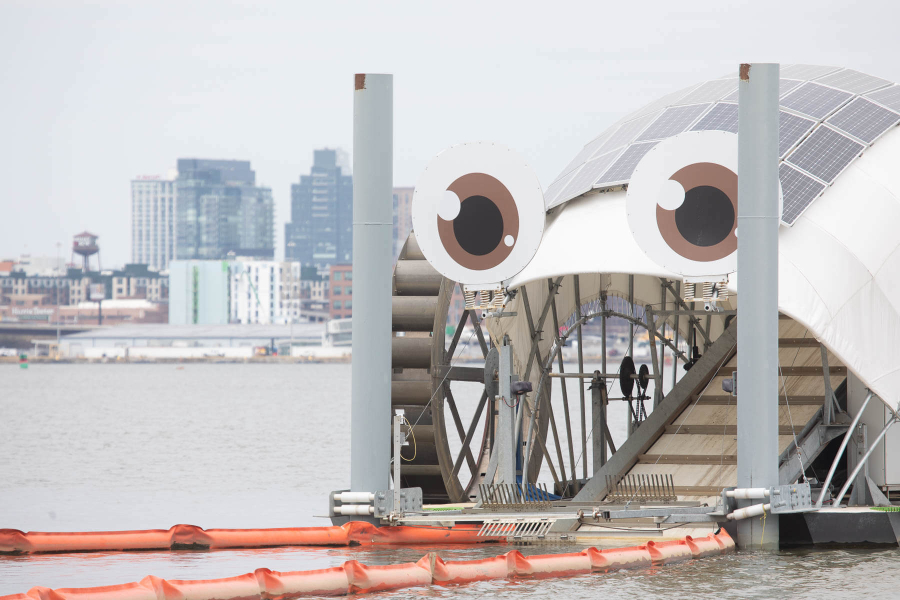Taking the foam out of food containers
Maryland becomes the first state to ban the much-debated material

Johann Eduard Simon would probably be as startled today with the controversy surrounding his invention as he was back in 1839, when he “accidentally” discovered polystyrene. Simon, an apothecary in Berlin, Germany, was working with the resin from a sweetgum tree, when he realized several days later that it had thickened into a jelly-like substance. This discovery would be experimented on by several people over the coming years, eventually turning into the strong form of plastic that we are familiar with today—polystyrene. In the 1940s, the Dow Chemical Company sought a patent for an improved version of polystyrene and branded it as the substance we are all familiar with today—Styrofoam.
While polystyrene can be found in many forms, making up everything from license plate frames to disposable dinnerware, the type that has been in the news most frequently over the past few years is expanded polystyrene foam (EPS foam). If you’ve ever gotten takeout from a restaurant, you know what I am referring to. It is used primarily in food containers, building insulation or those loose “peanuts” you use to mail a package.
Earlier this month, Maryland became the first state to ban EPS foam in food packaging, takeout containers and cups, following the lead of over 115 other cities and counties throughout the United States. Proponents cite several reasons for the ban, but mainly focus on the risks to our health and the environment. Opponents warn about the potential consequences to the economy and small businesses.
EPS foam is not easily recyclable because it is so porous (it is essentially 98 percent air) and is usually contaminated from food and drink residue, leading it to become one of the more common items found in our waste stream. Mr. Trash Wheel, located at the mouth of Jones Fall in Baltimore’s Inner Harbor, has collected more than one million bits of polystyrene since it launched in 2014, and on average, picks up 14,000 EPS foam containers each month. Many materials found in our trash, such as cardboard or paper, decompose over time, through a process called photolysis. EPS foam has been found to be resistant to this process, meaning that it could potentially be around forever. However, it breaks down into several smaller pieces, which can find their way into our waterways. Since it is so porous, it easily can absorb toxic contaminants found in pesticides, fertilizers and other chemicals. If consumed, it can be harmful to both marine life and the people that eat them.
There are other concerns around how EPS foam can impact our health. One of the main elements that is found in EPS foam is styrene, which was established as a possible carcinogen in 2002 by the International Agency for Research on Cancer. The Environmental Protection Agency doesn’t classify styrene as a carcinogen, but does caution against chronic exposure.
Several organizations argue that the potential impacts on small businesses and the economy in general from a ban is too great to ignore. EPS foam is generally less expensive than other materials, provides better insulation to keep food fresh over a longer period of time and maintains a steady temperature to keep items hot or cold. Small businesses may not be able to account for the increased costs to purchase food containers made of more expensive materials, which may be of consequence to the local economy.
Opponents of the EPS foam ban also state that the alternatives will not necessarily help clean up the environment, as litter and greenhouse gases will not decrease. Since products made of EPS foam weigh less than paper, they typically use less energy and fewer resources to manufacture, as well as fewer air emissions when they are transported.
Whether you agree or disagree with the EPS foam ban, it is now law in Maryland—with some exceptions. Food products that are packaged outside of Maryland, such as cups containing ramen noodles, can still be sold. And those EPS foam products used for packaging raw or butchered meat, and those not used for food service at all, will still be in circulation. The ban takes effect on July 1, 2020.

Comments
i like that u take action on taking trash and foam out of the ocean
Thank you!
Your comment has been received. Before it can be published, the comment will be reviewed by our team to ensure it adheres with our rules of engagement.
Back to recent stories